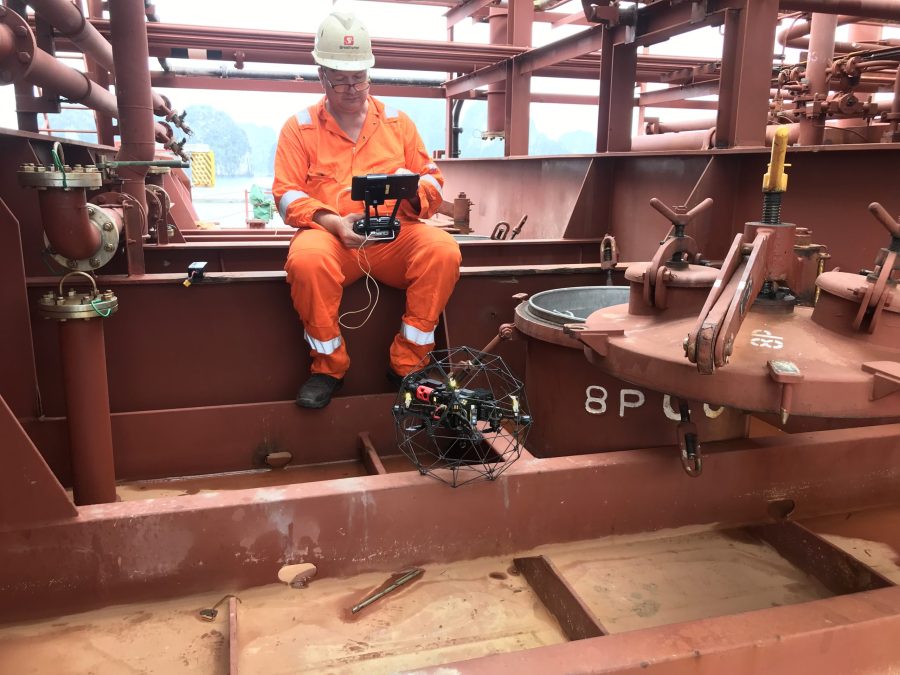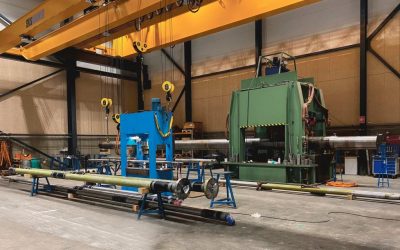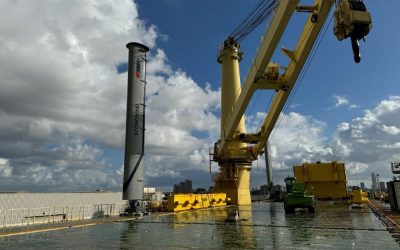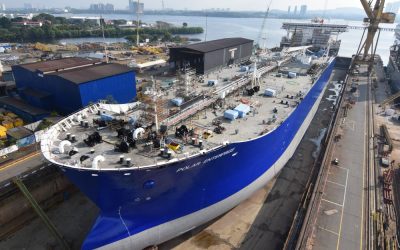Despite ongoing challenges, GDI has been able to demonstrate the reliability and effectiveness of its drone technology in the maritime sector
One of the pioneers in terms of using drone technology to perform remote inspections and surveys onboard ships, Global Drone Inspection (GDI) is broadly upbeat about prospects as the use of the technology becomes established.
CEO David Knukkel says, “Drone technology is becoming more common and more widely accepted as the ‘cowboys’ disappear from the market. Those companies that are now in this business deliver higher quality as their pilots are better trained and equipment becomes more mature.”
However, the past year has been something of a rocky road. Knukkel explains, “In 2015-2020 the market boomed, and everyone was buying a drone. Then the market dropped dramatically as many didn’t have the required experience, were not certified, used the wrong equipment and so on. Clients became reluctant to use drones because of concerns about the quality. I think we reached the bottom in 2022 and hope that in 2023 the slope is slowly upwards.”
GDI has recently started up audits for its second phase of class renewals, and for example has been approved again by ABS, thereby confirming its position as one of the maritime specialists in this sector. Also, the company says that accidents onboard are encouraging people to look at managing risks with a fresh perspective. Knukkel says, “I have had many discussions with clients, but also with insurance companies, about liabilities if the company is not using the best available technology, which is mandatory in Europe. It is a sensitive subject but only a matter of time before it becomes more widely discussed.”
GDI is now gearing up to expand its operations in partnership with others. Knukkel says, “We are now talking to a company in the Middle East, which is willing to invest in drones and training, and partner up with GDI to become a local service station. At the end of 2023 I am optimistic that we will have this partnership up and running in Dubai. If that works out well, we can set up similar arrangements in other strategic locations.”
GDI has also been part of an early adoption program with a manufacturer producing drones which can undertake thickness measurements. However, this project has been paused for now. Knukkel explains, “The market was not ready for it, and it was difficult to find assignments. There are other alternatives for UT-measurements with drones, but manufacturers like to sell instead of lease, which is difficult to justify. We have decided to wait until the teething problems are resolved before making a firm investment. In any case, for the inspections that we do in the maritime industry the drones that we have are good enough and perform according to expectations.”
Despite the difficulties of the past year, GDI has undertaken several projects in the maritime sector, including a lot of bulk carriers and tankers. “For these types of vessels, it is the combination of financial and safety benefits which makes it worth using drone technology,” says Knukkel. “We have also done a few relatively small vessels involving ballast tanks, where the safety aspect is large.”
Last year GDI in a particularly notable project inspected the underside of a large crane vessel. “These kinds of inspections are difficult, as there is no GPS underneath the construction, but the drone still suffers from weather influences in combination with the Venturi effect between the columns,” says Knukkel. “We needed to fly to the location, so we were limited to a specific drone with limited battery capacity as you are not allowed to travel with certain types of batteries. Nonetheless, we managed to complete the survey to the satisfaction of the surveyor and were able to show the footage through a remote connection.”






